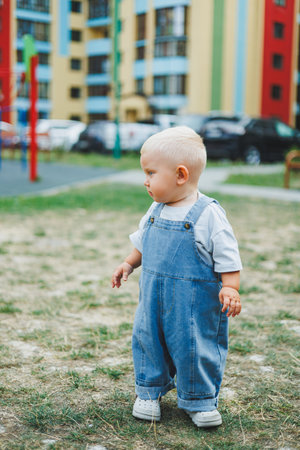Introduction to the EYFS Framework
The Early Years Foundation Stage (EYFS) framework stands as a cornerstone of early childhood education in England, providing a structured yet flexible approach for supporting children from birth to five years old. Established by the Department for Education, its primary purpose is to ensure that all young children, regardless of their background or individual needs, have the best possible start in life and are well-prepared for future learning. The EYFS sets out standards for learning, development, and care that must be followed by all Ofsted-registered early years providers, including nurseries, childminders, and reception classes within primary schools.
Central to the EYFS are four guiding principles: every child is a unique individual; positive relationships foster strong foundations; enabling environments support learning and development; and children learn and develop at different rates. These principles underpin practice across all early years settings, emphasising holistic development and inclusive provision. By promoting play-based learning alongside robust assessment practices, the EYFS framework recognises that each child’s journey is distinctive—an approach especially vital when working with children experiencing developmental delays. Within the UK context, the EYFS not only reflects contemporary understanding of child development but also embodies national values around equity, inclusion, and high-quality education for every child.
Understanding Developmental Delays
Developmental delays refer to significant lags in a childs attainment of milestones across one or more domains, such as communication, social-emotional skills, physical development, and cognition. Within the context of the Early Years Foundation Stage (EYFS), recognising and understanding these delays is crucial for effective early years practice in the UK.
Theoretical Perspectives on Developmental Delays
Theoretically, developmental delays can be viewed through various lenses. The maturational theory suggests that development unfolds according to a genetic timetable, so delays may indicate underlying neurological differences. Alternatively, ecological systems theory highlights the impact of environmental factors—such as family dynamics, socio-economic status, or quality of early education—on a childs progress.
Common Characteristics of Developmental Delays
| Domain | Examples of Delay |
|---|---|
| Communication & Language | Limited vocabulary, difficulty forming sentences, challenges following instructions |
| Cognitive Development | Trouble with problem-solving, memory issues, slower concept acquisition |
| Physical Development | Poor coordination, delayed walking or fine motor skills (e.g., using cutlery) |
| Social-Emotional Skills | Difficulty interacting with peers, limited emotional regulation or empathy |
Potential Causes of Developmental Delays
Developmental delays can arise from multiple sources. Some children may have genetic or medical conditions such as Down’s syndrome or cerebral palsy. Others may experience delays due to premature birth, sensory impairments (like hearing loss), or environmental disadvantages. In some cases, the cause remains unclear despite thorough assessment.
Implications for Children’s Learning Journeys within EYFS
Children with developmental delays may face unique challenges as they navigate the EYFS framework. These challenges can affect their ability to access certain areas of learning and develop key skills at the expected rate. However, with early identification and tailored support—such as differentiated activities and targeted interventions—practitioners can help children make meaningful progress. It is essential for settings to foster an inclusive environment where every child’s achievements are valued and their individual pathways are supported.

3. Adapting the EYFS for Individual Needs
The Early Years Foundation Stage (EYFS) provides a robust framework for supporting children’s learning and development, but implementing it effectively for children with developmental delays requires intentional adaptation. The core principle is to ensure that every child can access and benefit from the curriculum, reflecting the inclusive ethos of the British education sector. Practitioners must move beyond a ‘one size fits all’ approach and employ strategies that personalise the EYFS provision.
Strategies for Personalising Provision
To tailor the EYFS for children with developmental delays, educators should begin with detailed observations and assessments. Understanding each childs unique strengths, interests, and areas requiring support allows practitioners to set realistic yet ambitious targets. Planning should be flexible, with activities differentiated by outcome, process, or resources. For example, communication-friendly spaces, alternative formats for instructions, and visual supports can help children engage more confidently in daily routines.
Ensuring Inclusivity and Accessibility
Inclusivity is central to best practice in early years settings across the UK. This means adapting physical environments to be accessible—such as offering sensory corners or reducing background noise—and using adaptive equipment when needed. Practitioners should foster a welcoming atmosphere that values diversity, ensuring that children with developmental delays participate fully alongside their peers. Regular communication with parents and carers further strengthens this inclusive approach, as does working collaboratively with external professionals such as speech and language therapists or educational psychologists.
Reflecting Best Practices in the British Education Sector
The British education sector emphasises continuous professional development to keep staff up-to-date with effective interventions and current research. Practitioners are encouraged to reflect critically on their own practice, drawing on guidance such as the SEND Code of Practice. By embedding ongoing review processes and seeking input from families and specialists, early years settings can ensure that adaptations remain relevant and responsive to each child’s evolving needs.
4. Working with Families and Multi-Agency Teams
Implementing the Early Years Foundation Stage (EYFS) for children with developmental delays in the UK relies heavily on establishing robust collaborative partnerships. These partnerships are central to providing a holistic and effective approach, enabling every child to thrive within their unique context. Within the British educational system, strong cooperation between families, health professionals, and support services is not only encouraged but embedded within statutory guidance.
The Value of Family Engagement
Families possess invaluable insight into their child’s strengths, needs, and daily experiences. Engaging parents and carers as partners ensures that interventions and learning opportunities are both relevant and consistent across home and early years settings. Practitioners are encouraged to use regular communication—such as parent consultations, home visits, and learning journals—to foster mutual trust and understanding. By doing so, practitioners can tailor strategies that resonate with each family’s cultural background and values.
Multi-Agency Collaboration in Practice
Children with developmental delays often require coordinated input from several professionals. Multi-agency teams typically include early years practitioners, Special Educational Needs Coordinators (SENCOs), speech and language therapists, educational psychologists, health visitors, and sometimes social care workers. These professionals work together to assess needs, plan interventions, monitor progress, and review outcomes. The UK’s SEND Code of Practice outlines clear expectations for such cooperation under the principle of ‘joined-up working’.
Roles within a Typical Multi-Agency Team
| Professional | Main Role |
|---|---|
| SENCO | Coordinates SEND provision within the setting |
| Speech & Language Therapist | Assesses communication needs; provides targeted support |
| Health Visitor | Monitors child development; offers health advice |
| Educational Psychologist | Assesses learning needs; advises on strategies |
| Social Worker (if involved) | Supports family wellbeing; ensures safeguarding |
Benefits of Holistic Approaches
A holistic approach acknowledges the interconnectedness of children’s health, education, and family circumstances. When families and professionals collaborate effectively, they create a supportive environment where interventions can be reinforced at home and in educational settings. This synergy fosters greater consistency for the child and enhances the likelihood of positive developmental outcomes.
Key Principles for Effective Partnership Working:
- Respect for each family’s knowledge and experience
- Clear roles and open channels of communication among all agencies
- A shared focus on the child’s best interests
By embracing these principles within the UK system, early years settings can ensure that children with developmental delays receive personalised support that addresses every aspect of their development.
5. Assessment, Documentation, and Progress Tracking
Effective Observation Methods for Children with Developmental Delays
Within the framework of the Early Years Foundation Stage (EYFS), observation is a cornerstone for understanding each childs unique learning journey. For children with developmental delays, practitioners in the UK are encouraged to adopt flexible and sensitive observation strategies that recognise both subtle progress and individual strengths. This may include more frequent, short-term observations, as well as using a range of formats such as anecdotal notes, photographs, or audio recordings, tailored to the childs communication style and engagement patterns.
Assessment Practices Aligned with Statutory EYFS Requirements
Assessment must remain robust yet adaptable when supporting children with additional needs. Practitioners should utilise formative assessment tools, such as the EYFS Profile and Development Matters guidance, while adjusting expectations and milestones according to each childs abilities. The process should focus on identifying not only areas of need but also emerging competencies, thus providing a balanced view that informs targeted planning and support. Collaborative assessment involving input from parents, carers, and specialist professionals ensures a holistic picture of the childs development.
Record-Keeping Approaches Tailored to Additional Needs
Accurate documentation is essential under statutory EYFS obligations; however, for children with developmental delays, it is important to maintain records that reflect both progress and ongoing challenges in a meaningful way. Individual Learning Plans (ILPs) or Personalised Support Plans (PSPs) can be integrated into existing record-keeping systems. These documents should detail specific targets, interventions used, and regular review dates to monitor effectiveness. Recording methods must be accessible and transparent to all stakeholders involved in the child’s education.
Progress Tracking: Ensuring Inclusivity and Accountability
Progress tracking for children with developmental delays requires a nuanced approach that goes beyond standard checklists. Practitioners should employ graduated tracking systems that capture incremental achievements, ensuring that small steps of progress are recognised and celebrated. Regular review meetings with families provide opportunities to discuss outcomes and adapt strategies accordingly. By aligning these processes with statutory EYFS guidance, settings can ensure accountability while truly supporting each child’s individual learning journey.
6. Creating Enabling Environments
Establishing enabling environments is a cornerstone of the Early Years Foundation Stage (EYFS), particularly when supporting children with developmental delays. In the context of the UK, this involves more than just meeting statutory requirements; it means actively fostering inclusive, nurturing spaces that uphold British values such as respect, tolerance, and equality. Practitioners must thoughtfully design both physical and emotional settings that empower every child to participate, engage, and thrive.
Inclusive Physical Spaces
An enabling environment starts with accessibility. Classrooms and play areas should be organised to allow free movement for children with varying physical abilities, including those using mobility aids. Resources must be within easy reach for all children, and visual cues—such as pictorial labels or colour coding—can aid understanding and independence. Sensory-friendly zones, soft lighting, and quiet corners can help those who may be overwhelmed by noise or activity.
Adapting Learning Materials
All resources should reflect diversity and promote a sense of belonging. This includes books featuring characters with different abilities, toys that celebrate various cultures, and activities tailored to multiple learning styles. For children with developmental delays, practitioners should offer adapted tools such as chunky crayons, communication boards, or tactile resources that support fine motor development and language acquisition.
Supportive Emotional Climate
Beyond the physical setup, fostering a positive emotional climate is fundamental. Practitioners need to build strong, trusting relationships with each child and their families. Employing consistent routines and clear boundaries helps create a sense of security—a key aspect valued within British early years practice. Regular praise for effort and progress encourages resilience and self-esteem among children facing additional challenges.
Collaboration and High Expectations
Effective enabling environments are collaborative in nature. Practitioners should work closely with families, special educational needs coordinators (SENCOs), therapists, and local authorities to tailor support plans in line with the SEND Code of Practice. Maintaining high expectations for all children—while recognising individual starting points—ensures that every child is given opportunities to progress towards the EYFS learning goals.
By embedding these principles into everyday practice, early years settings across the UK can ensure that all children—including those with developmental delays—are welcomed into environments where they feel valued, supported, and empowered to achieve their fullest potential.
7. Professional Development and Staff Wellbeing
Theoretical Foundations of Continuous Professional Learning
Within the context of the Early Years Foundation Stage (EYFS) for children with developmental delays, robust professional development is essential. Theoretically, ongoing learning aligns with constructivist approaches, where practitioners are encouraged to reflect on their practice, engage in collaborative inquiry, and adapt evidence-based strategies to meet the diverse needs of children. Models such as Kolb’s experiential learning cycle emphasise the importance of reflection, planning, action, and review—an iterative process that is particularly valuable when supporting children with additional needs. In UK early years settings, such frameworks underpin the commitment to inclusion and personalised learning pathways.
Practical Strategies for Staff Training
Practically, continuous professional development (CPD) should include targeted training on specific developmental delays—such as speech and language difficulties or autism spectrum conditions—alongside more general principles of inclusive pedagogy. Opportunities for mentoring, peer observation, and specialist input from external agencies can enhance practitioner confidence and competence. Furthermore, embedding CPD into everyday practice—through regular team meetings, reflective supervision sessions, and access to up-to-date research—ensures that staff remain responsive to emerging needs within their cohort.
Safeguarding Staff Wellbeing
The emotional labour inherent in supporting children with developmental delays can impact staff wellbeing. It is vital that UK early years providers adopt a holistic approach to staff support. This includes manageable workloads, access to mental health resources, and fostering an open culture where challenges are acknowledged without stigma. Supervision should not only address practice issues but also provide a safe space for emotional debriefing and resilience building.
Creating a Supportive Culture
A supportive organisational culture—rooted in mutual respect and shared values—helps mitigate stress and prevents burnout. Leaders play a crucial role by modelling reflective practice, celebrating achievements, and encouraging self-care among their teams. Within the British context, this extends to recognising the unique pressures faced by practitioners working in inclusive settings and ensuring their voices inform policy and practice developments.
Conclusion: Sustaining Excellence Through Professional Growth
In summary, implementing the EYFS for children with developmental delays demands both theoretical understanding and practical investment in professional development and staff wellbeing. By prioritising CPD tailored to inclusion and safeguarding staff mental health within early years settings across the UK, providers lay the foundation for sustainable high-quality provision—and ultimately better outcomes for every child.


